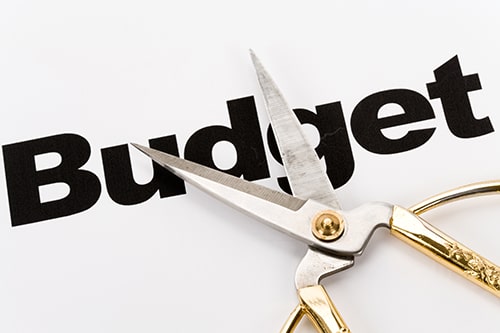The Importance of Business Budgeting
Does your business have a budget? Does it have plenty of forward planning and research on its side? Because without a budget in place, there’s a good chance it doesn’t. After all, business budgeting is very important to the modern business day and age. A budget does a lot for an organisation in the here and now, and it does a lot for that organisation’s future.
If you’re a small business owner, a budget is always going to work out in your favour. It’s going to help you outline your goals, and work towards them in a cost-effective and efficient manner. It should be a feature of your initial business plan and should help lay the foundation of your future business operations.
Budgeting is only going to become an increasingly important need as your business gets bigger and bigger, and thus, the groundwork for an efficient and working system should be set right now. If you’re not sure why a budget outline is so crucial, and why you can’t just come up with a budget idea on the spot, hopefully, we can shed a little more light on the subject for you.
All in all, every business should be working with a budget, and there are many reasons why; let’s delve into some of the main details surrounding why below. If you need to put a business budget together, make sure you use these points as a driving force behind your actions.
A Business Budget is a Long Term Plan

As mentioned above, a business budget is very much a plan for the future. It keeps your spending on the straight and narrow in the moment, but it also ensures you’re keeping an eye on the future of your business too. When you set out your business goals, a budget helps to plan expenses for them, including determining the highest priority spending, and where caps should be placed.
A budget needs to be relevant to the business it serves, and the fact that budgets can be versatile and flexible helps to make business budgets so important. A budget is there to help you bolster your yearly efforts, and every single business out there makes a different amount of money at various points of the year. Indeed, depending on the type of business you own, your budget planning needs to be a little different. For a company that offers products all the year round, planning is more relaxed, compared to a company that generates most of their annual revenue via summer or winter sales.
This long term planning ensures you have plenty of savings, and that you don’t overspend on your assets before you have the chance to expand them, and it ensures your business has plenty of value to work with.
A Business Budget Helps with Your Market Research
Market research is one of the main things that needs to be conducted in the run up to establishing a business, and once again, using a budget plan can help your business to put any research it comes up with to good use. It’s hard to apply generalised market research to a business that’s never operated before, or hasn’t come into contact with the very people it aims to serve, and so, the budget acts as both a guideline and a forecast.
Market research is conducted via its own means, but the budget will always be in the background for you to refer to. Why? Because a budget ensures you have the right time frame to work with, in terms of researching the market at the right time of year for your business, and also to ensure you’re never consuming too many resources on a month by month basis whilst doing so – this is where the long term budget works hand in hand with the forecast sheets you can prepare alongside it.
Similarly, it details how, where and when you can put this market research to good use within your business. It details if you’ve got the money to do so, in what departments you would need to obtain more, etc. All in all, the budget is there to back up your market research.
A Business Budget Can Help You to Evaluate

One of the main purposes of an annual or quarterly budget is to help you evaluate just how well you’re working, and for most businesses, this is what the budget will be referred to for the most. Evaluation is a necessary part of running a business, and it could very well be seen as the budget’s most important job.
At the end of each financial year, the budget serves to prove what went well, and what could be done better. It’s why keeping a proper track of both the incoming and outgoings is key – you cannot afford to miss out on creating a system like this, to ensure you’re moving into the next year with the right resources at hand.
And if it turns out you have spare or extra funds to work with, the budget frame will help you to allocate these out as well. Let’s look at a couple of examples: If you have debt, you can take a look at the outstanding balance, and just how long it’ll take to pay the whole amount off. If you’re working with a lack of savings, or there’s no insurance in place in case of illness or disaster, the budget will once again highlight this.
A Business Budget Ensures You Have the Manpower
The staffing within a business is going to cost the owner a lot of money on a yearly basis. Payroll is a big deal, but it’s a necessary one, and rarely do people find success on their own merit. So, ensuring that the budget takes into account just how many people you’re going to need to help balance the books, as well as run the day to day operations, is one of the first things to consider when writing one up.
Because a budget ensures that you’re hiring as and when you need to, and that you’re hiring people with the right pay brackets for your business. It ensures you can offer out promotions and pay rises where they’re deserved, and it also helps to indicate whether or not someone on your team is pulling their weight. All in all, your business’ budget not only details the financial wellbeing of your company, but it also shows you where and how you can make it healthier.
Thankfully, reaching out for financial aid is not hard, especially when you’ve got a detailed budget plan to show a professional. Accountants, bookkeepers, and BAS agents can be easily contacted by the government website, or you could visit the ASIC website to find a financial counselor.
A Business Budget Helps You To Cut Expenses

How often do you look back on quarterly reports and wish you had gone into a little more detail on the expenses side of things? Because a budget for your business could be the best way to pad out the cost efficiency reports that keep an eye on just how much money is going out of your business, compared to what’s coming in. A detailed and lengthy budget plan ensures you can make the hard decisions, depending on how much you’re spending on an annual basis, and how you can cut costs or find shortcuts around them.
Not to mention, new businesses often struggle in the face of handling the almighty expenses of trying to set up in the modern-day and age, and they do not help themselves when it comes to impressing a potential source of revenue.
A business budget ensures that anyone interested in your business, either a loan company, buyer, or venture capitalist investor has the details necessary to prove that you are a safe decision in terms of cash flow. Once again, it’s thinking in the long term that helps to prove your business has a future, and that the budget you’re working with has a good track record in the face of potentially overwhelming costs.
The Importance of Business Budgeting
So, how well is your business budget working out for you? If you don’t have one, it’s time to put one together. If you do have one, thank yourself for having the forethought for putting one together as part of your original business plan. Plus, take the time now to take it back to the drawing board, to reevaluate how well it’s working for you, and take the chance to have a look at how it’s forecasting your future.
All in all, a business budget incorporates a lot of elements. It ensures you have the fees in place to pay your bills, and shows you if and where you’re spending too much or too little. A business budget has the distributing power you need in the modern-day and age, especially as a small business that has a lot of competition to run up against. Business budgeting can always help.


